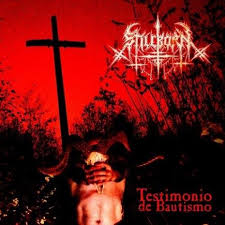

We took in a young man, 33, from off the street awhile back because he wanted to know Jesus.
I know his whole tragic story, but he is both likable and congenial.
He showed all sorts of signs of new life and took part in all that was going on here—but then Chris gradually lost all interest in growing in Jesus Christ.
Today, all on his own volition, he left us to go back to living on the street.
Steve Garmany and I both wept.
He seems to fit the picture Ray painted of a still born child.
I think many today are like Chris are becoming unsaveable? Is there a point of return?


From a Ray Stedman Daily Devotional:
It is impossible for those who have once been enlightened, who have tasted the heavenly gift, who have shared in the Holy Spirit, who have tasted the goodness of the word of God and the powers of the coming age and who have fallen away, to be brought back to repentance. To their loss they are crucifying the Son of God all over again and subjecting him to public disgrace. (Hebrews 6:4-6)
Here is the elaboration of an awful possibility. It is impossible to restore again to repentance these who experience certain Spirit-given blessings, if they shall fall away. The problem of the passage is: How can anyone experience all of this and not be Christian? If he is Christian, how can he fall away, without any hope of restoration? It is over these issues that the battle has waged hot throughout the Christian ages.
Can we take these expressions here as describing anything other than Spirit-produced, authentic Christian life? I would like to propose an explanation of this which has long haunted me. The Scripture frequently uses the analogy of human birth and growth to explain spiritual birth and growth. We have that even here. The use of milk by children is an analogy drawn from the physical life. Here is the question I would like to ask: Is it not possible that we frequently confuse conception with birth?
If the spiritual life follows the same pattern as the physical life, we all know that physical life does not begin with birth. It begins with conception. Have we not, perhaps, mistaken conception for birth, and, therefore, have been very confused when certain ones, who seemingly started well, have ended up stillborn? Is there in the spiritual life, as in the natural life, a gestation period before birth when true Spirit-imparted life can fail and result in a stillbirth?
Is there not a time when new Christians are more like embryos, forming little by little in the womb, fed by the faith and vitality of others? If this be the case, then the critical moment is not when the Word first meets with faith, that is conception; that is when the possibility of new life arises. But the critical moment is when the individual is asked to obey the Lord at cost to himself, contrary to his own will and desire. When the Lordship of Christ makes demand upon him and it comes into conflict with his own desire and purposes, his own plans and program. If any man will come after me, said Jesus, let him deny himself, and take up his cross and follow me, (Matthew 16:24). In grace, the Lord may make this appeal over the course of a number of years. But if it is ultimately refused, this is a stillbirth. The months, and even years, that may be spent in the enjoyment of conversion joy was simply Christian life in embryo. This is what Jesus' parable describes as seeds sown into unreceptive soil, only to spring up and then die off. The new birth occurs, if at all, when we first cease from our own works, and rest in Jesus Christ. That is when the life of faith begins.
If this step is refused and the decision is made to reject the claims of Christ to Lordship and control, there follows a hardening, blinding process which, if allowed to continue, may lead such a one to drop out of church, and in effect, to renounce his Christian faith. Though only God knows the true condition of the heart, if that occurs, the case, he says, is hopeless.
This brings us to the impossibility of return. It is impossible to restore them if they then commit apostasy, since they crucify the Son of God on their own account and hold him up to contempt. Why is it that God will not permit them to go on in understanding more truth? It is simply because they are repudiating the principle of the cross. They become, as Paul terms it in Philippians, enemies of the cross of Christ, (Philippians 3:18). From that point on their lives deteriorate and they shame the profession they once made.
These are challenging words, Father, and I ask that I would be willing to follow you, even to the cross.



A More Complete Commentary on Hebrews 6 by Ray Stedman:
Life presents a thousand examples of the need to act on knowledge before any benefit is received. It is not enough to know a telephone number; if you want to talk to someone, you must dial the number. It is not enough to know the price of an object; if you want it, you must pay that price. It is not enough to know where India is; if you want to see it, you must go there. So it should not seem strange that the writer of Hebrews insists that to know Jesus you must receive him by faith and obey his teaching.
The unfortunate chapter division at this point tends to minimize the opening Therefore of chapter 6. Our author does not propose to teach his readers again the elementary truths of God's word though he has told them their dullness seems to require it. They already know the teaching; what they need now is personal commitment to it. This can only be achieved by going on to those actions of faith that produce maturity. For this reason he urges them to leave the elementary teachings about Christ and go on from words to applications. Elementary teachings is not a reference to regeneration, but means introductory information that could lead to regeneration.
The rudiments he asks them to leave consist of six matters under two heads: (1) the foundation of repentance from acts that lead to death, and of faith in God; and (2) instruction about baptisms, the laying on of hands, the resurrection of the dead, and eternal judgment. These transitional truths lead from Jewish beliefs and practices to a full sharing in Christ. Though Bruce takes them as a Jewish list and others as Christian, the truth is they are both, as Bruce concedes that each "acquires a new significance in a Christian context" (1964:112).The point is that they do not represent anything but the barest beginnings of Christian faith. It is necessary to go from the knowledge of these initial truths to experiences which actually draw upon the priestly ministry of Jesus for this is what would lead them from head knowledge to heart response.
This rudimentary foundation is easily recognizable as the same one which Jesus and the apostles preached, namely, "repent and believe." Repentance is a permanent change of mind which results in right behavior ("Produce fruit in keeping with repentance"---Mt 3:8). The change they needed was to cease trusting in acts that lead to death (a phrase which is repeated in 9:14) or useless rituals,as the NIV alternatively translates. RSV. Tasker describes the result as "an abandonment of the attempt to obtain righteousness by seeking to obey the precepts of a lifeless moral code" (quoted by Bruce 1964:113). After turning from lifeless works (repentance), a positive action of faith in God must be taken. This recalls for us Paul's word to believers in Thessalonica: "You turned to God from idols to serve the living and true God." Repentance and faith are two sides of the same coin. They form the essential foundation upon which one may enter the Christian life.
Still, certain instruction in important doctrines was carried over from Old Testament teachings. This instruction falls into two sets: baptisms and laying on of hands, and resurrection of the dead and eternal judgment. The first set touches upon the beginning of the Christian life; the second set speaks of its final events. Together they bracket Christian doctrine, involving both impartation of life and accountability of experience.
It is evident from the ministry of John the Baptist that Christian baptism emerged from the Jewish practice of ritual ablutions or washings. This would explain the unusual plural here (from baptismos used of Jewish ablutions, rather than from the more common baptisma which is employed for Christian baptisms). It may, however, be an oblique reference to John's teaching in 1 John 5:7-8, "For there are three that testify: the Spirit, the water and the blood; and the three are in agreement" which does tie water baptism with the Christian teachings of Spirit and blood. The point the writer wishes to make is that baptism is an initiatory rite and must not be regarded as fulfilling all that a Christian is expected to know or do.
The laying on of hands was widely practiced in the early church, sometimes for the imparting of the Holy Spirit (Acts 8:17), sometimes for healing (Acts 28:8), sometimes for ordaining or commissioning (Acts 13:3). Though borrowed from Judaism, its Christian usage would need to be explained to the new convert. It is an act of identification, tying the individual to either the activity of God or that of the body of Christ. This, too, represents a beginning and not an end.
The doctrine of resurrection is central to Christianity though not to Judaism. It was taught in the Old Testament (Isaiah 26:19; Daniel 12:2) and was important to the Pharisees (Acts 23:6), but its central position in the New Testament demanded further instruction and repeated exposure to the testimony of apostles and other eyewitnesses to the resurrection of Jesus. Since his resurrection is an essential element of the Melchizedek priesthood, it would be especially important that Christian converts be fully informed on this matter. The Pharisaic view of a resurrection at the end of time was nothing more than a mere introduction to this great theme.
The theme of judgment to come is also clearly taught in the Old Testament (Isaiah 33:22; Genesis 18:25). The figure of the Son of Man, who approaches the Ancient of Days to receive authority to judge (Dan 7:9-14), would most certainly be identified as Jesus to any scribe from a Jewish background. The author will refer to such judgment in 9:27, but the full development of this theme awaits the recognition of Jesus as the one who speaks from heaven (12:25) before the terrible shaking of the heavens and the earth.
This foundation and accompanying instruction could, if appropriated by faith, bring a Jew to new life in Christ. This would not be difficult to accept since it was based upon truth already taught in the Law and the Prophets. But though some among these Hebrews knew these truths intellectually, they gave little indication in their behavior that they had combined them with personal faith (4:2). The combination of the word about Christ with individual faith should have produced a Spirit-born vitality and enthusiasm which would make it delightfully easy to instruct them in the wonders of the Melchizedek priesthood. But since this élan is so visibly absent the writer must warn them that something is seriously lacking. It is dangerous to stay forever on the foundation; in fact, it is impossible. If they are not willing or able to move on to more mature understanding, they are in grave peril of losing what they already have, and that irretrievably! Growth in truth is something all Christians (note the we in v. 3) must do, God permitting.
Surely God would permit all of us to go on to maturity in the Christian life whenever we wished to do so! Or would he? This is the very question raised by the words God permitting. It seems to parallel the quotation in 3:11, "So I declared on oath in my anger, 'They shall never enter my rest.'" The unbelieving Israelites in the desert wanted to enter into Canaan, and, presumably, into the spiritual rest which Canaan symbolized. But they could not, for God would not permit it! Hence they must continue to wander in the wilderness till all were dead. Far from being a polite cliché or pious wish, these words God permitting form the fulcrum on which the warning of verses 4-8 turns.
This solemn warning marks one of the great theological battlefields of Scripture. Here the clashing proponents of Calvinism and Arminianism have wheeled and charged, unleashing thunderous volleys of acrimony against one another, only to generate much heat and little profit. The Calvinists, mindful of the doctrine of the perseverance of the saints (eternal security), seize upon the words It is impossible . . . if they fall away, to be brought back to repentance. "These cannot," they say, "be truly regenerated Christians, no matter how strongly the descriptive phrases of verses 4-5 seem to imply they are, for otherwise they would not fall away into irremediable apostasy."
On the other hand, the Arminians focus on the descriptive phrases and say, "It is impossible to portray true Christians any more powerfully and accurately than is done here; therefore, since they are said to fall away it is clear that regeneration can be lost after it has been obtained." A third group of interpreters insist that the question of eternal salvation is not in question here at all, since it is only a matter of urging new Christians on to further understanding of their fellowship with Christ.
As in the case of many clashes over Scripture, there is truth in different views. (20) We are helped here by viewing the readers not as a homogeneous group who must all be classified in one category or another. Rather, they are a mixed assembly, among whom were many genuine believers needing a degree of prodding to go on in their experience of truth. There were also some who professed faith in Christ but who gave no evidence in their behavior or attitudes that they were truly regenerate. This is the case in many churches today and has been so in every generation of believers from the first century on. No matter what careful expedients are employed to make sure that all church members are born again, it is almost certain that there is no congregation which is not just such a mixed multitude as the writer of Hebrews addresses. The ratio of true believers to apparent believers may vary widely, but since we cannot distinguish these by observation (or even careful testing), we must view these warnings as applying to us all.
Just how far religious experience can go and yet still fall short of regeneration is described by five phrases in verses 4-5. Let us look at them one by one. First is, those who have once been enlightened. Some of the early church Fathers linked this enlightenment with baptism, but that only identifies the effect with the cause. It plainly means an intellectual understanding of God's redemptive actions. The light of the gospel can be received without leading to baptism, but those who were baptized normally did so because they understood the truth about Jesus and his atonement and wished to avail themselves of its privileges. The once likely means "once for all" (Gk: hapax), indicating that enlightenment cannot be repeated since a full understanding admits of no improvement. One sees this in the epignosin, "full knowledge," of 10:26. But though knowledge is prerequisite to faith, it does not always indicate that saving faith is present.
The second description is that they have tasted the heavenly gift. The gift can be the Holy Spirit (2:4) or Jesus himself (In 4:10; 2 Corinthians 9:15), since both come from heaven. The mention of the Spirit in the next phrase seems to indicate the gift here is Jesus. Some commentators see this "tasting" as referring to the sacrament of the Lord's Supper, which identifies its elements as the body and blood of Jesus. Those who do have saving faith would surely observe this sacrament, yet it is quite possible to participate in baptism and the Lord's Supper without actual faith. Even if the reference is not to the Eucharist, it is still true that one can have much knowledge of Jesus and even have "tasted" of his blessings, without personal commitment to him (John 2:23-25).
The third distinctive, who have shared in the Holy Spirit, seems at first glance almost conclusive that these are true Christians. Paul's admonition "If anyone does not have the Spirit of Christ, he does not belong to Christ" marks the presence of the Spirit as the seal of a regenerated life. But there are other ministries of the Spirit that precede those of indwelling. One can become a sharer in or partaker of the Spirit by responding for a time to his drawing power intended to lead one ultimately to Christ. The translation "shared" implies something done in company with others, and may well be linked with the "laying on of hands" referred to in 6:2 (Kistemaker 1984:159). This would envision a group response to the gospel, as we see in many evangelistic rallies today, but it does not mean that all who so respond exercise saving faith. Since enlightenment and tasting are also ministries of the Spirit, they join the others as true of those who have traveled for a ways on their journey to faith, but who have not necessarily arrived.
A fourth mark of spiritual progress is to have tasted the goodness of the word of God. Since it is by the "living and enduring word of God" that men and women are born again (1 Peter 1:23), it is necessary to hear it first, and then "taste" its goodness. The readers of this epistle had done this, but there is no indication in this phrase that they have responded with personal faith. Some very likely have, but others have stopped short of the goal. And this arouses the concern of the writer.
The last, and fifth, advantage possessed by these Hebrews is that they have tasted the powers of the coming age. Hughes rightly says, "These powers may confidently be identified with the signs, wonders, and miracles mentioned earlier in 2:4 as accompaniments of the preaching of the gospel". These miracles were predicted in Isaiah 35:56 as accompanying the appearance of God among his people:
Then will the eyes of the blind be opened
and the ears of the deaf unstopped.
Then will the lame leap like a deer,
and the mute tongue shout for joy.
Jesus plainly saw himself fulfilling these words (Luke 7:22). It is apparent from these words in Hebrews that, eventually, in the divine program they would be manifest at both the first and second comings of Jesus. They belong primarily to the coming age, which is clearly not the new heavens and earth; these miracles of restoration will not be needed in that perfect day. They will be seen, finally, in the kingdom age when the prophet's picture finds its complete fulfillment. But the "taste" which many of these readers had had in the time of Jesus and the apostles was unconvincing evidence even to their own eyes. Like the Israelites who murmured in the wilderness, despite the miracles of supply they witnessed, these also failed to "share in the faith of those who obeyed" the word they heard.
Simon Magus (Acts 8:9-24) serves to illustrate the possibility that some who experience such convincing proofs can nevertheless fall short of saving faith and turn away into apostasy. He professed belief in Jesus, was baptized and yet was severely rebuked by Peter because his "heart was not right before God." He was still a "captive to sin." Even more to the point is Judas, who walked and talked daily with the Lord, heard his superb teaching, witnessed many miracles and was himself sent out to minister in the power of God. But Jesus called him "the son of perdition" and "a devil" (John 6:70). Judas did not receive salvation and then lose it. Despite his enormous exposure to truth and grace, it is plain that he resisted personal conversion and at last turned away from eternal life to a sad and eternal death.
Verse 6 describes the grim result of turning back to unbelief after receiving the full enlightenment provided. Repentance is the gateway to eternal life, as many Scriptures make clear. (21) After being brought by the Spirit-given blessings of verses 4-5 to the very edge of repentance, those who fall back into unbelief cannot be brought to that same place again, since nothing more could be added to that which proved insufficient before. Their state is now hopeless. As Bruce cogently observes, "God has pledged Himself to pardon all who truly repent, but Scripture and experience alike suggest that it is possible for human beings to arrive at a state of heart and life where they can no longer repent" (1964:124).
What blocks their way of return is that they have put themselves into the position of those who deliberately refused Jesus' claim to be the Son of God and forced him to the shame and humiliation of the cross. The NIV because to their loss does not translate the Greek heautois well. "To themselves" (KJV) or "on their own account" (RSV) is better. That is, they fall away deliberately, unwilling to separate themselves from those who actually condemned Jesus to be crucified. Their hearts are hardened in flintlike determination to have things their own rebellious way.
 Verses 7-8 illustrate their situation exactly. The rain that falls from heaven corresponds to the enlightening blessings of verses 4-5. If the seed of the word of God is truly present in the soil (the hearts of men and women), the rain causes fruitful crops to grow, fulfilling the blessing intended by God. But where the word of truth, though heard, has been rejected, the rain can only quicken that which is already in the soil (thorns and thistles), and continued rain will only make matters worse, not better. Such fruitless land will merit the ultimate cursing of God and be finally given over to burning. Such a scenario parallels the condition Jesus describes of certain branches of the true vine which do not abide in him, and are therefore cut off and gathered into the fire and burned (John 15:2, 6).
Verses 7-8 illustrate their situation exactly. The rain that falls from heaven corresponds to the enlightening blessings of verses 4-5. If the seed of the word of God is truly present in the soil (the hearts of men and women), the rain causes fruitful crops to grow, fulfilling the blessing intended by God. But where the word of truth, though heard, has been rejected, the rain can only quicken that which is already in the soil (thorns and thistles), and continued rain will only make matters worse, not better. Such fruitless land will merit the ultimate cursing of God and be finally given over to burning. Such a scenario parallels the condition Jesus describes of certain branches of the true vine which do not abide in him, and are therefore cut off and gathered into the fire and burned (John 15:2, 6).
Consistently throughout Scripture those who are genuinely Christ's do not fall away into apostasy. Thus Paul reminds the Philippians that the God who began a good work in them would complete it on the day of Christ. What our author fears is that there may be among his readers many who claimed to be Christians, perhaps witnessed for him, participated in the church, yet have refused to repent. Turning back from the light they have perceived, they prove to be enemies of Christ and not a part of the people of God at all!
Having issued this warning, the pastor's heart of the writer expresses reassurance and encouragement in verses 9-12. Though some among them deserve his sobering caution, nevertheless he does not see them all in this dangerous state. It is clear that he sincerely believes that the larger part of his readers are truly saved and only need exhortation to diligence and patience. Their works of love and support to other believers strongly testify to their genuine faith, for as James declares, a faith that does not result in works is dead! (James 2:26).
Verse 11 states again the truth found everywhere in Scripture: The only reliable sign of regeneration is a faith that does not fail and continues to the end of life. It may at times falter and grow dim as it faces various trials and pressures, but it cannot be wholly abandoned, for Jesus has promised, "I give them eternal life, and they shall never perish; no one can snatch them out of my hand" (John 10:28).
One wag has observed, "If your faith fizzles before you finish, it's because it was faulty from the first!" I recall once receiving a phone call from a young new Christian who said, "I've decided to give up being a Christian; I can't handle it anymore." Knowing him well, I said, "I agree. That's probably what you ought to do." There was silence on the line for a moment, and then he said, "You know I can't do that!" And I said, "No, I know you can't." And he couldn't---and he didn't!
True faith by nature awakens hope. In verses 11-12, the author urges the Hebrews to learn how to nurture faith and make their hope sure. The role models for this nurturing are the patriarchs, notably Abraham. Abraham's faith flourished because it fastened upon two facets of God's dealings with him: God's promise and his oath. A promise of many descendants was given to Abraham while he was still in Haran, recorded in Genesis 12:1-3. It was repeated when he arrived at Shechem (Genesis 12:6-7) and reiterated on several occasions after that. Supported by these renewed promises, Abraham waited for twenty-five years until he was one hundred years old when Isaac was finally born. When Isaac had grown into young manhood, God commanded Abraham to offer Isaac as a sacrifice on Mount Moriah, now called the Temple Mount in Jerusalem. At the last moment, God stopped Abraham's hand. And after this dramatic act of Abraham's faith, God renewed his promise of many descendants and confirmed it with an oath (Genesis 22:17). Since this oath appears in verse 14 and then is followed by Abraham waiting patiently to receive what was promised, it seems to refer, not to the birth of Isaac which had occurred many years before, but to the birth of Jacob who would be the father of the twelve tribes from which Israel sprang. Abraham was still living when Jacob and Esau were born to Isaac and Rebekah. So Abraham's faith, grown through the years of waiting, led at last to the fulfillment of his hope that he would have a line of descendants through whom all nations would be blessed. That hope found its ultimate fulfillment in Jesus, who said of Abraham, "Your father Abraham rejoiced at the thought of seeing my day; he saw it and was glad" (John 8:56).
The author now applies this to his readers, in verses 16-20, by declaring that God, in his eagerness to convey to men and women of faith the total trustworthiness of his word, condescended to the human practice of adding a solemn oath to the promise he had given. Perhaps many today have had the experience of being put under oath in a courtroom or before a notary public. It is sobering to realize that any attempt at lying after the oath has been taken will result in punishment. Before the law, a mere promise to tell the truth is not enough---an oath must be taken. With God, of course, his promise is just as reliable as his oath---he cannot lie because his whole nature is truthful. But because he wanted to make the unchanging nature of his purpose very clear to any who seek his help, he condescended to add to his promise a solemn oath. So by these two unchangeable things in which it is impossible for God to lie, the readers of this letter, and we who share it with them, are greatly encouraged to take hold of the hope offered. Since God cannot lie to us, and actually confirmed his promise with an oath, let us, as the writer says, be greatly encouraged.
What, specifically, is that hope? It is the Melchizedek ministry of Jesus, as verses 19-20 make clear. He has already entered heaven on our behalf and stands ready as a great high priest to impart comfort, strength, forgiveness, love, joy and peace to any who flee to him for refuge in time of trouble. Like an anchor which holds a boat steady in the midst of a storm, he can sustain and steady us when we are battered and beaten by life. He can do this forever since he is not an Aaronic priest who can only minister for one lifetime, but a priest after the order of Melchizedek who ministers in the power of an endless life! An old hymn catches the thought well:
We have an anchor that keeps the soul,
Steadfast and sure while the billows roll.
Anchored to the rock which cannot move,
Grounded firm and deep in the Savior's love.
The author of Hebrews pictures our faith entering the sanctuary in heaven where Jesus sits upon the throne. There it lays hold of his mercy and grace so fully that we are held fast, as though by a great anchor, against the beating waves of trouble and doubt. Held steady in the midst of trying circumstances, we grow in the certainty of our hope of glory. With these encouraging words of hope, he introduces the grand theme of his epistle: the new priesthood which operates on the basis of a new covenant and makes possible a fruitful life of faith in a faithless and hostile world.

Lambert Dolphin's Place
Lambert's Personal Testimony
Email Lambert Dolphin
Recent and Recovered Articles